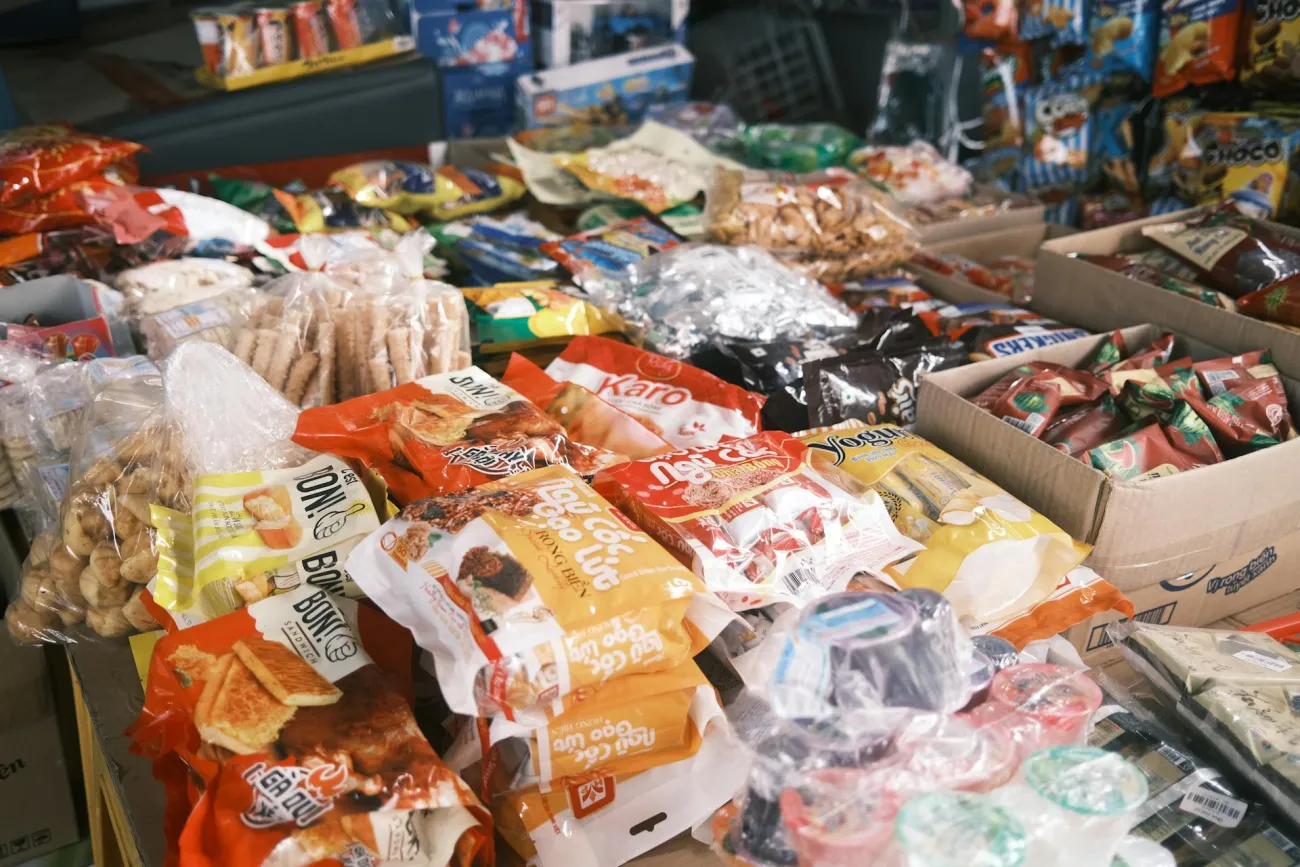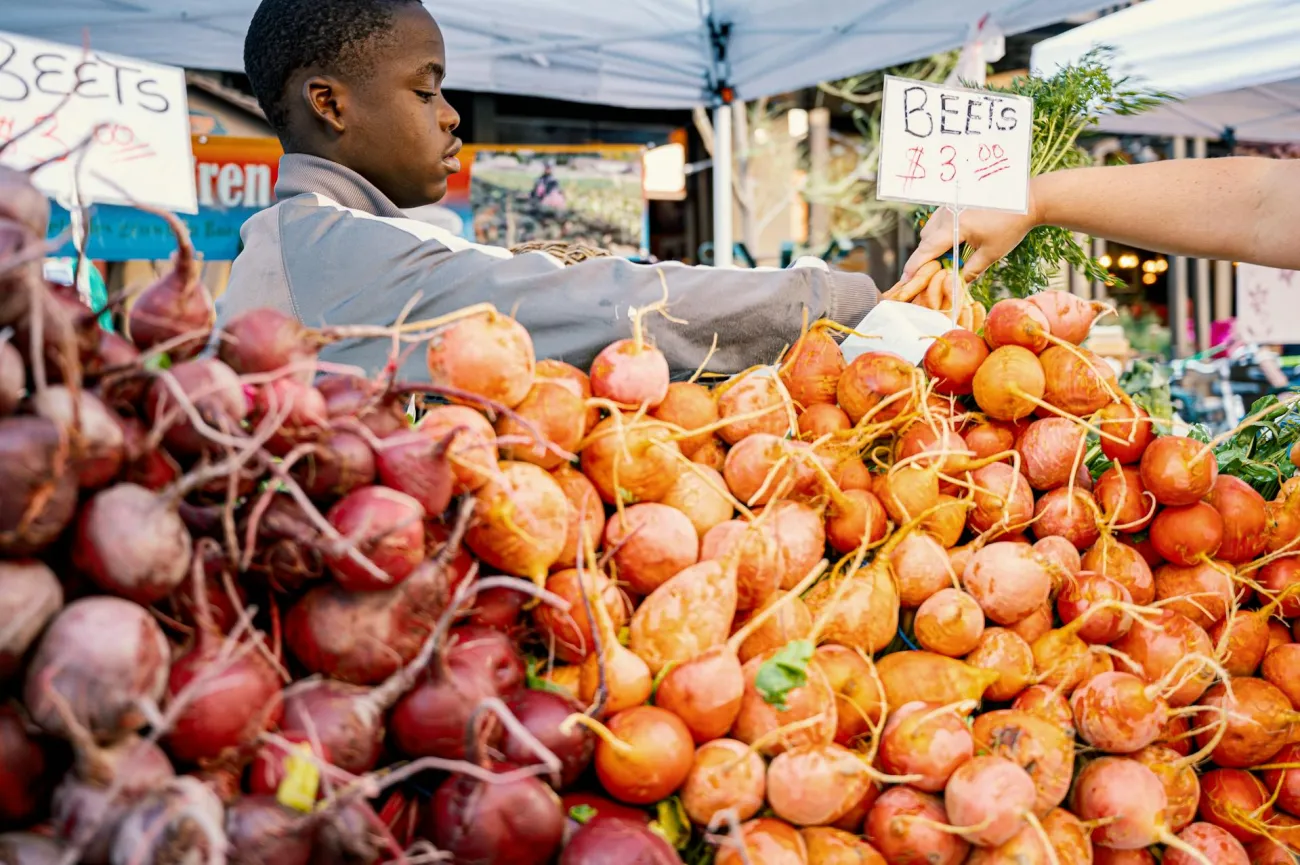Episode summary
500 scientists from 60 countries gathered at the 5th Global Food Security Conference in Leuven, Belgium. Instead of saying, "you had to be there," we bring you voices and reflections from the conference. Host Matthew Kessler recorded dozens of interviews, asking experts what key messages they want to deliver to those with the power to change food systems, what are the economics of food systems transformation, and which solutions to make food systems more resilient deserve more attention.
This is Part 3 of a 3-part series, which six of the seven women scientists from the Global South awarded the 2023 OWSD-Elsevier Foundation Awards. This year's focus was on Food security. This episode was made with the support from ‘shout it out’, an instrument of the Global Minds program.
Take TABLE's 2024 Survey
About the Global Food Security Conference
Food system activities are increasing putting pressure on planetary boundaries and the natural resource base which underpins food security for all. They are also accentuating the triple burden of malnutrition for many, and healthier diets derived from more sustainable food systems are needed. The triple ‘Cs’ of climate, covid and conflict, and other recent short-term shocks to the food system, have emerged against a background of longer-term stresses, adding the issue of food system resilience to the already-recognised sustainability agenda. There is therefore an urgent need for food system change both to improve health and environmental outcomes in fairer and more equitable ways, and to enhance resilience to further shocks and stresses. Building on the momentum from the UN Food System Summit and recognizing that the 2030 target year of the Sustainable Development Goals is on the horizon, this 5th Global Food Security Conference will bring together science, business and policy to address this need.
This 5th edition was organized by Elsevier, KU Leuven, Wageningen University and Research and TABLE.
About the speakers
Eugenie Kayitesi, Prof at University of Pretoria, South Africa. Eugenie is a food scientist, who is trying to improve nutrition, diet diversity and food security in Africa developing unique products from underutilized food sources, as well as improving their nutritional composition and health promoting constituents. The core of her research relates to indigenous, underutilized African plant-based foods, such as legumes, cereals, green leafy vegetables and fruits. Her work has highlighted the importance of using readily available and affordable food crops to create food products with improved nutritional, functional and sensory quality.
Renuka Attanayake, Prof at University of Kelaniya, Sri Lank. Renuka is a plant pathologist working on crop disease identification and management in Sri Lanka. Her projects include the optimization of a rapid detection method of coconut phytoplasma in Sri Lanka, and the identification of genetic diversity of white mold pathogen on cabbage and black mold on onions. With her work, she is contributing to the development of resistant inducer treatments and farmers' education to reduce the negative effects of some of the most common crop diseases in her country. plant and molecular biology; crop disease identification and management.
Carla Fabiana Crespo Melgar, Researcher at Universidad Mayor de San Andrés, Bolivia. Carla is a biochemist focused on increasing agricultural productivity as a crucial step to alleviate hunger. With her research, she is investigating the potential of using beneficial microorganisms and application protocols as biocontrollers, biofertilizers, bioinoculants and growth promoters for crop production in Bolivia and the region, with the aim of exploring ways that they can be produced locally by communities or small companies, once the technology and application protocols are validated.biotechnology and microbiology; increasing agricultural productivity
Munkhjargal Tserendorj, Researcher at Mongolian University of Life Sciences, Mongolia. Munkhjargal is a Veterinary Doctor with a PhD in Animal and Food Hygiene, who is helping Mongolia to control economically important tick-borne diseases. She has conducted national and international projects for strengthening capacities in the diagnosis and treatment of animal diseases, especially vector-borne diseases, leading to the development of effective strategies to decrease severe economic losses in the small ruminants' population in Mongolia. Data from these studies is now used as base information for initiating prevention and control programs.
Yeyinou Laura Estelle Loko, Researcher at the National University for Science, Technology and Mathematic in the Republic of Benin. Laura is an Entomologist with a PhD in plant genetic resources and crop protection committed to the reduction of losses caused by insect pests. She develops control methods that respect human health and the environment, favoring the use of naturally resistant varieties, medicinal plants with insecticidal properties, entomopathogenic microorganisms, and predators. She is also working on the development of a digital toolbox and an intelligent monitoring system adapted to smallholder farmers for effective pest management in Benin.
Haneen Dwaib, Chairwoman of Clinical Nutrition and Dietetics Department at Palestine Ahliya University, Palestine. Haneen is investigating dietary interventions to tackle obesity as a case of disguised hunger, since the lack of a decent, well-balanced diet causes deficits in the majority of micronutrients and occasionally macronutrients. Her research focuses on studying the gut microbiota and to find non-invasive early detection biomarkers of premature cardiovascular dysfunction and adipose tissue inflammation in pre-diabetic laboratory rats.
Related Feed episodes
Economics of Food System Transformation (Part 2)
Is Global Food Security a Solvable Puzzle? (Part 1)
Jessica Duncan on COP28 and who shapes food policy
Grasshoppers - agricultural pest or sustainable food?
Neena Prasad on the power of ultra-processed foods
Narrowing the yield gap in Sub-Saharan Africa



Comments (0)